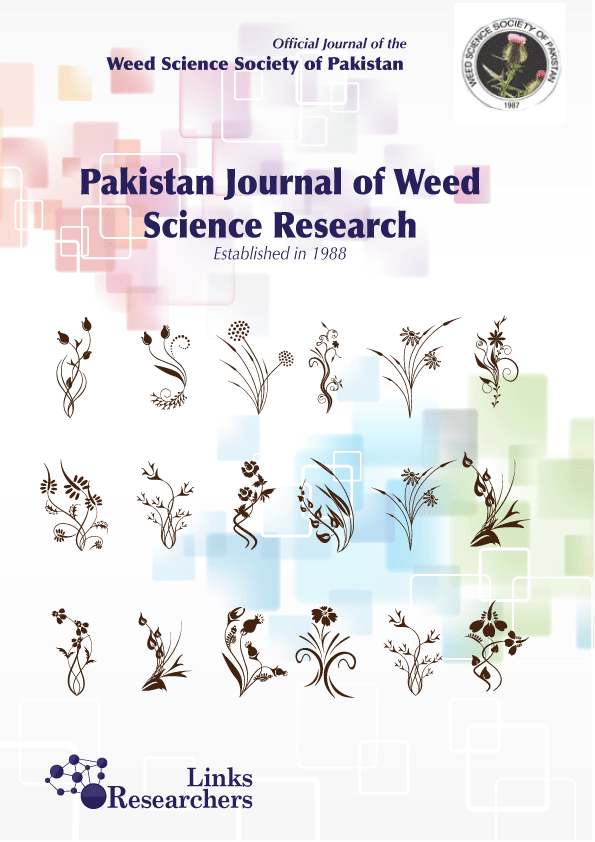Sclerotium rolfsii, a soil-borne pathogen of over 500 plant species, causes collar rot
disease in chickpea plant and reduces its survival rate, growth and yield. This study was
undertaken to assess the benefits of soil amendment with a weed Chenopodium album L.,
on growth, yield and physiology of chickpea var. Bakhar-2011, against S. rolfsii. For this
purpose, soil was sterilized by fumigation with formaline and then inoculum of S. rolfsii was
mixed. After one week of pathogen inoculation, soil was amended with dry biomass of C.
album aerial parts at 1, 2 and 3% (w/w), irrigated and left for one week for leaching.
Thereafter, chickpea seeds were sown in the pots. Experiment was conducted in a
completely randomized design with six replications. S. rolfsii significantly reduced dry
biomass of shoot, root and grains of chickpea by 21, 36 and 50%, respectively, as
compared to negative control (without fungus or C. album). Likewise, chlorophyll and
carotenoid contents were also reduced by application of S. rolfsii. Application of different
concentrations of dry biomass of C. album (DBC) significantly improved shoot and root dry
biomass, grain yield, and chlorophyll and carotenoid contents of chickpea over S. rolfsii
inoculated treatment (positive control). The positive effects of DBC on plant growth and
yield were increased by increasing its concentration. In general, S. rolfsii increased phenolic
content, and activities of phenylalanine ammonia lyase (PAL), catalase (CAT) and
peroxidase (POX), which were gradually reduced with increasing concentration of DBC. This
study concluded that application of 3% DBC improve resistance of chickpea var. Bakhar-
2011 to S. rolfsii and increase crop growth and yield.




